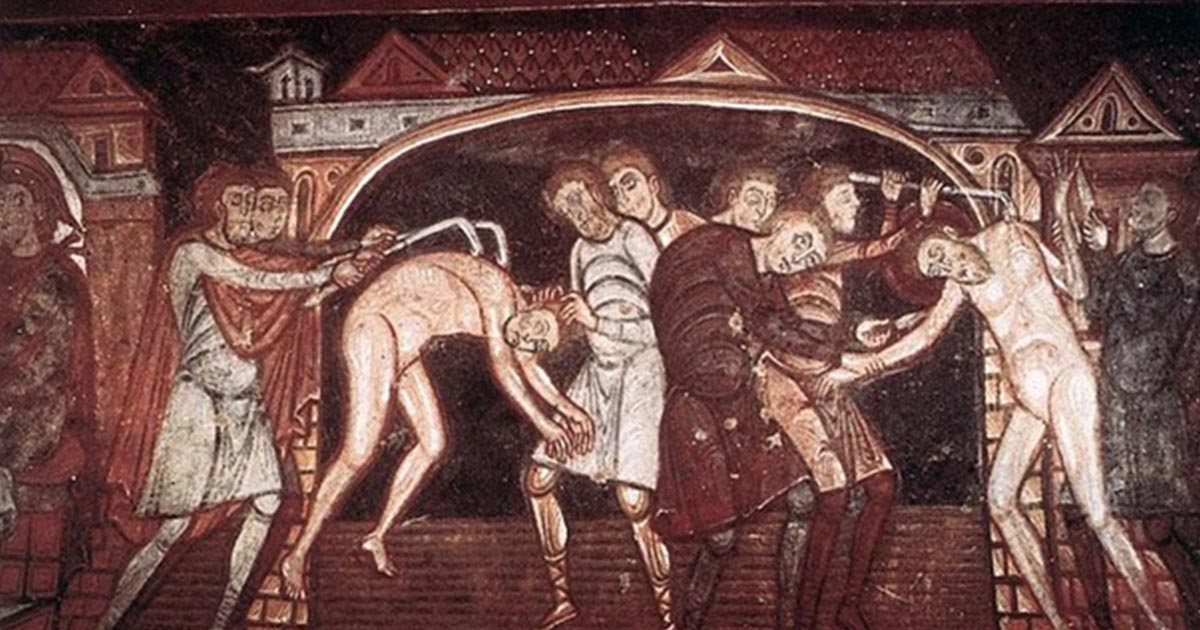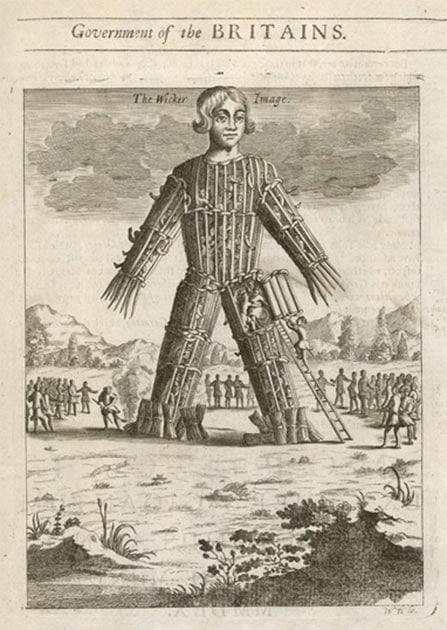
Horrific Prolonged Capital Punishments in Ancient Times
All are familiar with the burning of witches and criminals – who often died by asphyxia or cardiac arrest before their flesh was consumed by the flames - but since antiquity the cruel ingenuity of torturers inspired astonishingly horrific measures to punish transgressors and prolong their agonizing and excruciating deaths, often to gratify the sadistic pleasures of their executioners.

Depiction of a Wicker Man, stocked with victims to be burnt. (Archivist/ Adobe Stock)
Roasted Alive and Swallowing Molten Lead
According to legend the Celtic druids held Roman legionaries captive in wicker men baskets, and then set them alight, as sacrifices to their gods. Although Cicero, Tacitus and Pliny the Elder, commented on human sacrifice among the Celts, it is only Julius Caesar in his Commentary of the Gallic Wars, who ascribes this particular practice to the druids. There is a possibility that the wicker man baskets could have been Roman spin to fan fear and disdain among the Roman populace towards the vicious Celtic enemies and to justify the invasions of the Celtic lands. However, there may be truth to it as a much later comment is found in the 10th-century Commenta Bernensia, (or Bern scholia preserved in the Burgerbibliothek of Bern, Switzerland) referring to Lucan's De Bello Civili’s epic poem Pharsalia, describing the Celts burning people in a wooden effigy as sacrifice to Taranis, god of thunder.

Perillos being forced into the brazen bull that he built for Phalaris by Pierre Woeiriot (circa 1562)(Public Domain)
Diodorus Siculus, in his Bibliotheca Historica, tells of the Sicilian bull, a brazen bull invented by Perillos of Athens for Phalaris, the tyrant of Akragas, Sicily. Prisoners were manhandled through an opened latch on the side of the metal bull and then a fire was made under it, to slowly roast alive the victims trapped inside. Perillos told Phalaris that he had designed an acoustic device implanted inside the bull that would convert the victims’ pitiful wails into the ‘melodious of bellowings’ of a bull, to escape, along with incense, through the open nose of the brazen bull. Phalaris tricked Perillos into a demonstration, locked him inside the bull and lit the fire. However, Phalaris freed Perillos before he died, but then he threw him over a cliff. Phalaris himself was tortured to death in his own brazen bull when he was conquered by Telemachus. Three Roman emperors used the brazen bull to torture Christians. Hadrian roasted St Eustace and his family in a brazen bull; Domitian roasted Saint Antipas, Bishop of Pergamon in 92 AD and in 287 AD Diocletian roasted Pelagia of Tarsus. Some say the brazen bull was also only propaganda and the Catholic Church discounts the roasting of St Eustace.

Engraving of a Conquistador being executed by gold by Theodor de Bry (1528–1598)(Public Domain)
Under old Hebraic law certain sexual offences are punishable by burning. In the Mishnah, the following manner of burning the criminal is described: “The obligatory procedure for execution by burning: They immersed him in dung up to his knees, rolled a rough cloth into a soft one and wound it about his neck. One pulled it one way, one the other until he opened his mouth. Thereupon one ignites the (lead) wick and throws it in his mouth, and it descends to his bowels and sears his bowels.” In effect, the person dies from being fed molten lead.




